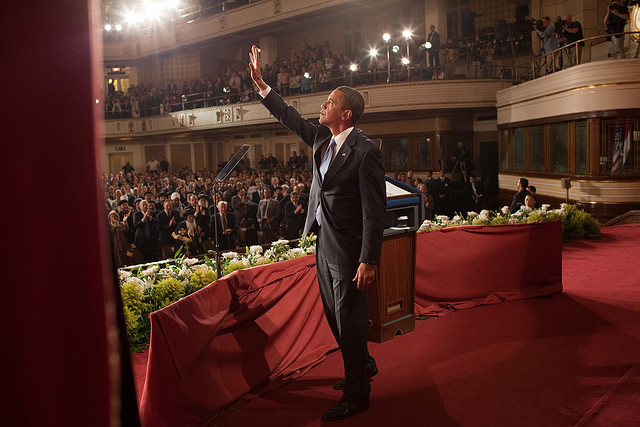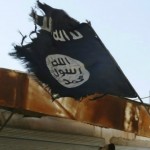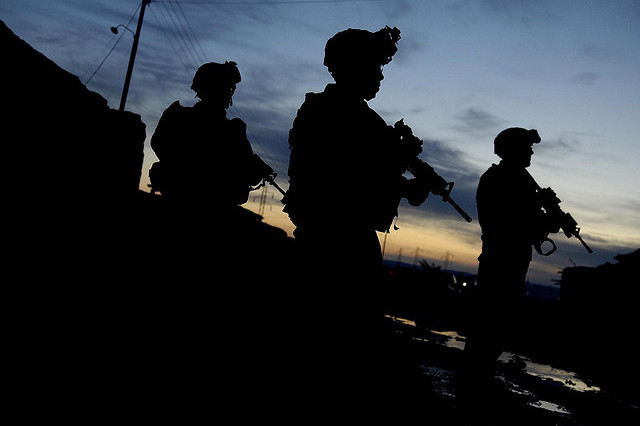by Emile Nakhleh
This year Arab political Islam will be greatly influenced by US regional policy, as it has been since the Obama administration came into office six years ago. Indeed, as the US standing in the region rose with Mr. Obama’s presidency beginning in January 2009, so did the fortunes of Arab political Islam.
But when Arab autocrats perceived US regional policy to have floundered and Washington’s leverage to have diminished, they proceeded to repress domestic Islamic political parties with impunity, American protestations notwithstanding.
This policy linkage, expected to prevail in the coming year, will not bode well for political Islam. Like last year, the US will in 2015 pay more attention to securing Arab autocrats’ support in the fight against Islamic State forces than to the mistreatment of mainstream Islamic political parties and movements, which will have severe consequences in the long run.
Since the middle of 2013, the Obama administration’s focus on the tactical need to woo dictators in the fight against terrorist groups has trumped its commitment to the engagement objective. America’s growing support for Arab dictators meant that Arab political Islam would be sacrificed. For example, Washington seems oblivious to the thousands of mainstream Islamists and other opposition activists languishing in Egyptian jails.
What is Political Islam?
Several assumptions underpin this judgment. First, “political Islam” applies to mainstream Islamic political parties and movements, which have rejected violence and made a strategic shift toward participatory and coalition politics through free elections. Arab political Islam generally includes the Muslim Brotherhood in Egypt and Jordan, Hamas in Palestine, Hezbollah in Lebanon, al-Nahda in Tunisia, and al-Wefaq in Bahrain.
The term “political Islam” does not include radical and terrorist groups such as the Islamic State (ISIS, ISIL or IS), al-Qaeda in the Arabian Peninsula, North Africa, Iraq, and Syria, or armed opposition groups in Iraq, Syria, Yemen, and Libya. Nor does it apply to terrorist groups in Africa such as Boko Haram, al-Shabab, and others.
Unfortunately in the past three years, many policy makers in the West, and curiously in several Arab countries, have equated mainstream political Islam with radical and terrorist groups. This erroneous and self-serving linkage has provided Washington with a fig leaf to justify its cozy relations with Arab autocrats and tolerance of their bloody repression of their citizens.
Repression Breeds Radicalism
It has also given these autocrats an excuse to suppress their Islamic parties and exclude them from the political process. In a press interview late last month, Egypt’s President Abdel Fattah al-Sisi forcefully denounced the Muslim Brotherhood and pledged the movement would not enter the Egyptian parliament.
Egypt’s recent terrorism laws, which Sisi and other Arab autocrats have approved, provide them with a pseudo-legal cover to silence the opposition, including mainstream political Islam. They have used the expansive and vague definitions of terrorism included in these decrees to incarcerate any person or group that is “harmful to national unity.” Any criticism of the regime or the ruler is now viewed as a “terrorist” act, punishable by lengthy imprisonment.
The Dec. 28 arrest of the Bahraini Sheikh Ali Salman, Secretary General of al-Wefaq, is yet another example of draconian measures against peaceful mainstream opposition leaders and parties in the region. Regime repression of these groups is expected to prevail in 2015.
Second, whereas terrorist organizations are a threat to the region and to Western countries, including mainstream political Islam in the governance of their countries in the long run is good for domestic stability and regional security. It also serves the interests of Western powers in the region.
Recent history tells us that exclusion and repression often lead to radicalization. Some youth in these parties have given up on participatory politics in favor of confrontational politics and violence. This phenomenon is expected to increase in 2015, as suppression of political Islam becomes more pervasive and institutionalized.
Third, the serious mistakes the Muslim Brotherhood and al-Nahda made in their first time ever as governing parties should not be surprising since they lacked the experience of governance. Such poor performance, however, is not unique to them. Nor should it be used as an excuse to depose them illegally and to void the democratic process, as the Sisi-led military coup did in Egypt in 2013.
Although Islamic political parties tend to win the first election after the toppling of dictators, the litmus test of their popular support lies in succeeding elections. The recent post-Arab Spring election in Tunisia is a case in point.
When Arab citizens are provided with the opportunity to participate in fair and free elections, they are capable of electing the party that best serves their interests, regardless of whether the party is Islamic or secular.
Had Field Marshall Sisi in 2013 allowed the Muslim Brotherhood and President Mohammed Morsi to stay in power until the following election, they would have been voted out, according to public opinion polls at the time. But Sisi and his military junta were not truly committed to a genuine democratic transition in Egypt. Now, according to Human Rights Watch reports, the current state of human rights in Egypt is much worse than it was under former President Hosni Mubarak.
The US and Political Islam
Upon taking office, President Obama understood that disagreements between the United States and the Muslim world, especially political Islam, were driven by specific policies, not values of good governance. A key factor driving these disagreements was the widely held Muslim perception that America’s war on terror was a war on Islam.
The Obama administration also realized that while a very small percentage of Muslims engaged in violence and terrorism, the United States must find ways to engage the other 1.6 billion Muslims worldwide. That drove President Obama early on in his administration to grant media interviews to Arab broadcasters and give his historic Cairo speech in June 2009.
However, as the wars in Iraq and Afghanistan dragged on, and as drone strikes caused more civilian casualties in Yemen, Afghanistan, and elsewhere, many Muslims became more skeptical of Washington’s commitment to sincere engagement with the Muslim world.
The Arab uprisings beginning in 2011 known as the Arab Spring and the toppling of dictators prompted the United States to support calls for freedom, political reform, dignity, and democracy. Washington announced it would work with Islamic political parties, particularly the Muslim Brotherhood and al-Nahda, as long as these parties were committed to peaceful change and to the principles of pluralism, elections, and democracy.
That unprecedented opening boosted the fortunes of Arab political Islam and inclusive politics in the Arab world. American rapprochement with political Islam, however, did not last beyond two years.
The Way Forward
Much as one might disagree with Islamic political ideology, it’s the height of folly to think that long-term domestic stability and economic security in Egypt, Bahrain, Palestine, or Lebanon could be achieved without including the Muslim Brotherhood, al-Wefaq, Hamas, and Hezbollah in governance.
Coddling autocrats is a short-term strategy that will not succeed in the long run. The longer the cozy relationship lasts, the more Muslims will revert to the earlier belief that America’s war on terrorism is a war on Islam.
The Arab countries that witnessed the fall of dictators, especially Egypt, will with Washington’s acquiescence revert back to repression and autocracy, as if the Arab Spring never happened.
Photo: President Barack Obama waves to the crowd at the conclusion of his speech at Cairo University in Cairo, Egypt on June 4, 2009. In his speech, President Obama called for a “new beginning between the United States and Muslims,” declaring that “this cycle of suspicion and discord must end.” Credit: Official White House Photo by Pete Souza






Excellent……”exclusion and repression often lead to radicalization” explains so much of history.
Very good analysis Mr Nakhleh. But with all due respect, I have to say that the US and to some extent the western politicians are incapable of dealing with the populist governments in the regions where supplying the west with their valued resources. The western world likes to protect their interest by dealing with one person as the dictator specifically in the ME. This phenomenon goes back to early 1900 when William Nox Darsey discovered oil in the city of Masjed Soleiman, Iran. The western countries usually like a corrupted leader who can be bought very cheaply and as you know it’s not to difficult for the dictator to sell their own dignity, family, the people and their country. Generally any populist government with a president and a legislative body is very time consuming and often difficult to deal with. To certain extent this is the reason that the western governments are unable to deal with Iran. Therefore many other excuses such as nuclear program, support for the terrorist orgs are being used to force the country into capitulation and perhaps a regime change! I do remember that president Jimmy Carter and Ronald Reagan were saying that they don’t know whom with should they be dealing in regards to Iran. Of course, the Iranian government has many vices and weaknesses but the process of democratization is long, painful and takes a lot of hard work.
How is it, that the U.S. can’t seem to get its own act together, when faced with the failures in just this new century, nothing has been learned. I used to believe that wars were fought as a means of population control, but not any more, as the rates of Military deaths are down,but the innocent civilian deaths haven’t changed if not increased. At the rate this so-called “war on terror” is going, will the world just be in continual conflict with each other? It seems that all the wrong people are calling the shots, yet there doesn’t seem to be anyone willing or able to stop them.
Within four years the Arab Spring has seen the rise and the fall of the Sunni political Islam whose ambition was to emulate the successful Shia Iranian Islamic revolution.
The notion of “Political Islam” is now associated with the Islamic State and Al Qaeda and is seen as an evil to push away. The only immediate power than can do that are authoritarian military regime or a pseudo-secular “democracy” or a combination of both.
“Arabism” has been an attempt to unify Arabs of all creeds and religions. It was strongly fought by the West who saw it as dangerous threat to their interests in the region. Instead they promoted dictators that they pampered enough to allow corruption to sneak in.
Some ‘dictators’ still believed in “Arabism” like Hafez Al Assad while the others were just seeking their own personal glory.
After “Arabism ” was extirpated from the mind of the Arabs, the people had to deal with corruption, disunion and constant interference from western powers and a sense of loss.
Sunni underground political Islam was building up in several countries, under different sahpe. It was prematurely pushed in the foreground by the Arab Spring whose real origin was a revolt against social injustice.
Yet it failed miserably because it was not yet mature enough and fell into all the traps that many countries, Arabs and Western set for them.
The emergence of Sunni ISIS was the cherry on the cake. Political Islam=Terrorism
It is now impossible to differentiate a ‘good’ political Islam from a ‘bad” one. Sunni political Islam has been tampered and it is now dead.
Isn’t time that Arabs return to “Arabism” that unites them and forget about political islam that has shown how divisive it can be?